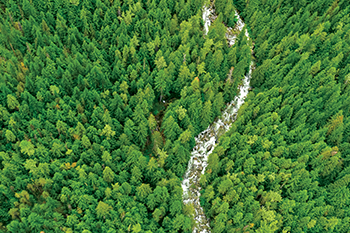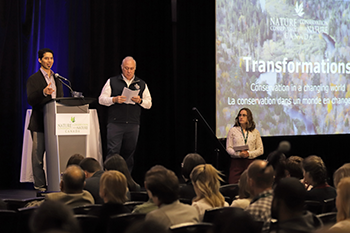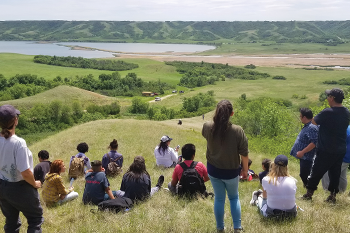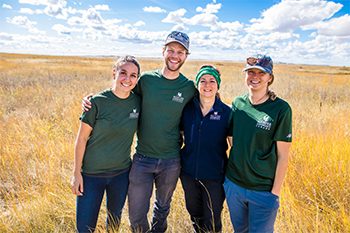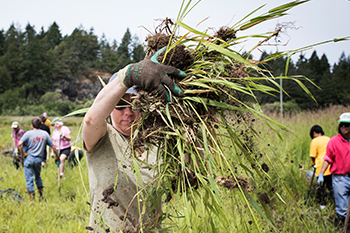Over a century ago, many of the wetlands on Ontario’s Pelee Island in Lake Erie had been drained. On a property acquired by the Nature Conservancy of Canada (NCC), much of the rich soil in these fields had eroded and the lands were now marginal for farming. NCC secured the property to protect remnants of habitat that supported many different endangered species. But what to do with these fields?
The management plan for the property called for something ambitious. Could we bring these wetlands back?
Almost 10 years later, NCC began to transform these marginal lands back into wetlands. By excavating depressions and breaking old drainage tiles we were able to get this land to again hold water. With this water came life. Not only did wetland plants quickly return, but so did migrating shorebirds, turtles and waterfowl. When given a chance, the resilience of nature can be rapid and remarkable.
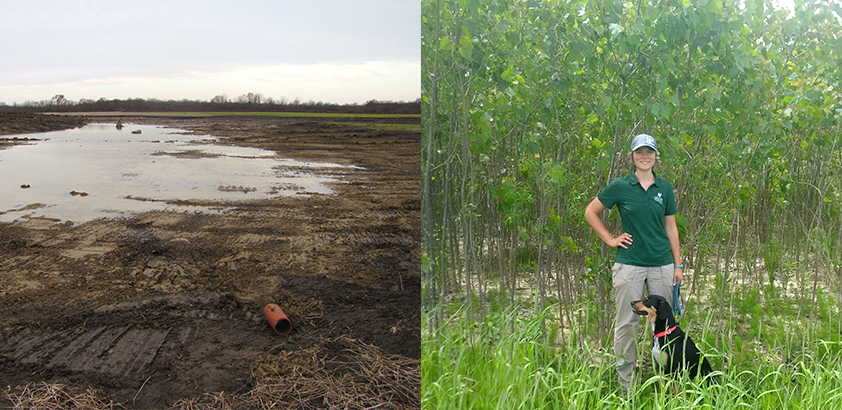
Nature has much to teach us about resilience, and can inspire us in times of uncertainty and challenge. It’s perhaps no wonder that Canadians found themselves turning to nature during such challenging times.
And it’s no surprise that the last fiscal year posed a number of challenges for most organizations, including the Nature Conservancy of Canada (NCC). Among them, the global pandemic caused by COVID-19, the increased urgency of the climate and biodiversity crisis and the resulting global economic uncertainty posed perhaps the largest challenges in the organization’s close-to-60-year history.
But NCC’s cautious and creative approach to an unexpected global crisis shows that with prudent planning, NCC can also be resilient and even thrive in times of change.
Although the COVID-19 pandemic emerged in the fourth quarter of FY 2020-21, NCC proved its ability to pivot quickly. Advances in technology and our new internal communications program meant staff could transition to working remotely while maintaining our focus and productivity, ensuring that donor contributions continued to be put to good use during times of physical distancing. In a proactive move facing a number of uncertainties, the NCC management team developed a plan to ensure NCC’s financial resilience in the next fiscal year.
NCC also faced additional uncertainties with the announcement of the retirement of our president and CEO, John Lounds, who has served the organization for more than 23 years. To plan for a seamless transition, our board of directors put a plan in place to prepare for a transition in leadership to guide NCC in the next decade. And our staff complement is now the among youngest and largest it has been, pushing us to do more, better, to achieve our vision.
NCC remains committed to our mission. And our supporters’ firm belief in our work has made us even more committed to ensuring our organization continues to thrive in the face of unexpected challenges. The successes of the last year have shown what can happen when committed Canadians come together to ensure a natural legacy for the next generations and beyond.




